
APPLIED ECOLOGY AND ENVIRONMENTAL RESEARCH
metrics 2024
Exploring the vital connections between ecology and our environment.
Introduction
Applied Ecology and Environmental Research is a distinguished journal published by ALOKI Applied Ecological Research and Forensic Inst Ltd, located in Hungary. Since its inception in 2003, the journal has provided a pivotal platform for the dissemination of innovative research and discussions pertaining to applied ecology and its intersection with environmental sciences. With its ISSN 1589-1623 and E-ISSN 1785-0037, the journal boasts a respectable presence, achieving a Q3 ranking in Agronomy and Crop Science and a Q4 ranking in Ecology, Evolution, Behavior, and Systematics as of 2023. This reflects its commitment to publishing high-quality research that is vital for advancing knowledge in these fields. While it primarily operates under a subscription model, authors and institutions are encouraged to contribute meaningful research that sparks dialogue and fosters collaboration among a diverse range of stakeholders in ecological research. Researchers, professionals, and students alike will find valuable insights and contributions that address contemporary environmental challenges and promote sustainability. Join the community of scholars who are shaping the future of ecology and environmental research through this impactful publication.
Metrics 2024
 0.24
0.24 0.60
0.60 0.90
0.90 43
43Metrics History
Rank 2024
Scopus
IF (Web Of Science)
JCI (Web Of Science)
Quartile History
Similar Journals
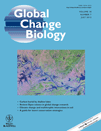
GLOBAL CHANGE BIOLOGY
Navigating the Complexities of Global Environmental ChangeGLOBAL CHANGE BIOLOGY, published by Wiley, is a leading journal dedicated to advancing the scientific understanding of the relationships between biological systems and global environmental changes. With an impressive impact factor placing it in the Q1 category across multiple disciplines—including Ecology, Environmental Chemistry, and Global and Planetary Change—this journal is essential for researchers, professionals, and students aiming to stay at the forefront of this dynamic field. The journal has a rich history since its inception in 1995, continually providing a platform for high-quality research that informs policy and management practices worldwide. Although it is not open access, the journal remains a valuable resource for those committed to exploring the complexities of ecological and environmental change. With a Scopus ranking of #3 in Global and Planetary Change and #6 in both Ecology and Environmental Chemistry, GLOBAL CHANGE BIOLOGY continues to shape the dialogue on the pressing environmental challenges of our time.
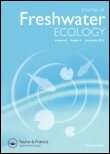
JOURNAL OF FRESHWATER ECOLOGY
Driving impactful research for ecological conservation.JOURNAL OF FRESHWATER ECOLOGY, published by Taylor & Francis Inc, is an esteemed source of research dedicated to advancing the understanding of freshwater ecosystems. Established in 1981, this Open Access journal has provided a platform for innovative studies and groundbreaking articles relevant to the fields of Aquatic Science and Ecology. With its HIndex reflecting a commitment to quality scholarship, the journal is currently classified in the Q3 category for both Aquatic Science and Ecology, Evolution, Behavior and Systematics, indicating its respectable impact within these disciplines. The journal ranks within the 45th percentile in Ecology and the 41st percentile in Aquatic Science on Scopus, highlighting its relevance to a global audience of researchers and practitioners. By facilitating unrestricted access to research findings since 2017, JOURNAL OF FRESHWATER ECOLOGY aims to enrich our understanding of freshwater systems and their conservation, making it an essential resource for those invested in ecological research and environmental sustainability.
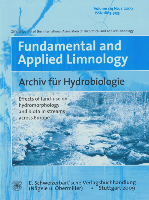
Fundamental and Applied Limnology
Exploring Freshwater Frontiers: Bridging Research and ApplicationFundamental and Applied Limnology is an esteemed academic journal dedicated to the exploration of freshwater ecosystems, bridging the gap between fundamental research and practical applications. Published by E Schweizerbart'sche Verlagsbuchhandlung in Germany, this journal has been a vital resource in the fields of aquatic science and ecology since its inception in 2007. With its ISSN 1863-9135 and E-ISSN 1863-9135, it provides a platform for researchers to disseminate significant findings related to limnology, contributing to a rich understanding of freshwater biodiversity, water quality, and ecological interactions. Although currently rated in the Q3 quartile for aquatic sciences and ecology as per the 2023 rankings, it remains a valuable outlet for interdisciplinary research and practical insights, facilitating critical advancements in environmental management. Open access options enhance its visibility and accessibility, making it indispensable for researchers, professionals, and students alike who are committed to advancing the scholarship in freshwater studies. Engaging with this journal not only opens doors to the latest research findings but also fosters collaboration and innovation in the ecological community.
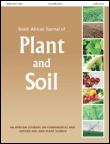
South African Journal of Plant and Soil
Pioneering insights into plant and soil management.South African Journal of Plant and Soil is an esteemed academic publication dedicated to advancing the fields of Ecology, Plant Science, and Soil Science. Published by TAYLOR & FRANCIS LTD in the United Kingdom, this journal has been a vital resource since its inception in 1984, providing a platform for innovative research and scholarly articles that address critical issues in plant and soil management. With a current impact factor placing it in the Q3 category according to the 2023 rankings, it occupies an influential position within the academic community, especially amongst researchers focused on agricultural and environmental sciences. Although not an open-access journal, it remains accessible to a broad audience through libraries and institutions that recognize its value in facilitating ecologically and environmentally focused discussions. The journal's ongoing commitment to publishing high-quality research ensures that it plays a pivotal role in nurturing knowledge and fostering advancements in sustainable practices across southern Africa and beyond.
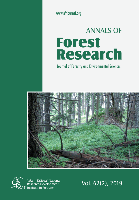
Annals of Forest Research
Exploring sustainable solutions for forest ecosystems.Annals of Forest Research is a peer-reviewed journal dedicated to advancing knowledge in the fields of forestry, ecology, and plant sciences. Published by EDITURA SILVICA in Romania, this journal has been an open access publication since 2008, providing a platform for researchers to share their insights and findings with a global audience. The journal operates under a rigorous selection process, reflected in its positioning within the Q2 category in Forestry and Q3 in both Ecology and Plant Science as of 2023. With Scopus rankings indicating a solid percentile among its peers, Annals of Forest Research continues to play a vital role in disseminating innovative research and fostering scholarly dialogue. Researchers, professionals, and students are encouraged to explore its diverse range of articles, which address both foundational and contemporary issues in forest management and environmental sustainability, contributing to the sustainable use and preservation of forest ecosystems.

BIOLOGY AND ENVIRONMENT-PROCEEDINGS OF THE ROYAL IRISH ACADEMY
Empowering Scholars to Tackle Ecological ChallengesBIOLOGY AND ENVIRONMENT - PROCEEDINGS OF THE ROYAL IRISH ACADEMY serves as a vital platform for advancing knowledge in the rapidly evolving fields of biological and environmental sciences. Published by the esteemed Royal Irish Academy, this journal, with an ISSN of 0791-7945 and an E-ISSN of 2009-003X, offers a rich compilation of research articles, reviews, and proceedings that cater to the academic community in Ireland and beyond. Since its inception in 1993 and continuing through to 2024, the journal has positioned itself as a valuable resource within the Q4 category in Agricultural and Biological Sciences and Environmental Science, as detailed by the 2023 Scopus rankings. While not currently offering open access, its contributions significantly impact understanding and discussions surrounding ecological and biological challenges. Researchers, professionals, and students alike will find that the journal not only reflects current trends, but also pushes the boundaries of research, making it an essential read for anyone invested in the study of the natural world.
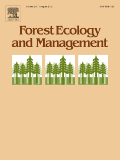
FOREST ECOLOGY AND MANAGEMENT
Advancing Sustainable Forest PracticesFOREST ECOLOGY AND MANAGEMENT is a premier peer-reviewed journal dedicated to the integral study of forest ecosystems and their management, published by Elsevier in the Netherlands. With an impactful presence in the field, this journal boasts a prestigious Q1 ranking in multiple categories, including Forestry, Management, Monitoring, Policy and Law, and Nature and Landscape Conservation as of 2023. It addresses key issues relevant to sustainable forest practices, conservation strategies, and environmental monitoring, making it a vital resource for researchers, practitioners, and policymakers alike. The journal is indexed with an impressive Scopus rank, placing it among the top tier of titles in Agricultural and Biological Sciences and Environmental Science. While it does not offer Open Access options, its rigorous review process and high visibility make it essential for those seeking to stay abreast of the latest findings and trends in forest ecology and management. Published continuously since 1976, FOREST ECOLOGY AND MANAGEMENT aims to foster interdisciplinary collaboration and advance knowledge critical to the stewardship of forest resources in an ever-changing global landscape.

Folia Oecologica
Pioneering Research in Environmental Sciences.Folia Oecologica is a distinguished open-access journal published by WALTER DE GRUYTER GMBH, focusing on critical research in the fields of agricultural and biological sciences, ecology, and forestry. Established as a vital platform for the dissemination of knowledge, this journal has been providing free access to its valuable content since 2017, catering to an international audience engaged in environmental and ecological studies. With its ISSN 1336-5266 and E-ISSN 1338-7014, Folia Oecologica has earned notable ranks in Scopus, placing it in the 62nd percentile for Agricultural and Biological Sciences and the 50th percentile for Environmental Science. The journal's commitment to high-quality research is reflected in its positions in the Q2 and Q3 quartiles across various categories in 2023. As it converges years from 2006 to 2024, Folia Oecologica continues to foster scholarly dialogue and collaboration among researchers, professionals, and students, making significant contributions to the understanding and preservation of our ecological systems.
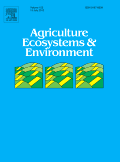
AGRICULTURE ECOSYSTEMS & ENVIRONMENT
Uncovering the Synergy Between Agriculture and the EnvironmentAGRICULTURE ECOSYSTEMS & ENVIRONMENT is a premier journal published by Elsevier, specializing in the fields of agronomy, animal science, and ecology. With an impressive impact factor reflective of its stature, it ranks in the top quartile (Q1) across three significant categories, highlighting its critical role in advancing research within the agricultural and environmental sciences. The journal serves as a vital platform for disseminating high-quality research that addresses the complex interactions between agriculture and ecosystems, providing insightful methodologies and findings that inform sustainable practices. As the journal continues to converge from 1983 and through to 2025, it remains committed to offering both traditional and innovative access options while contributing to the academic community's understanding of pressing environmental challenges. Researchers, professionals, and students are encouraged to engage with the journal's comprehensive content, which is positioned among the elite in its fields, having achieved top rankings in Scopus across relevant disciplines.

International Journal of Limnology
Unveiling the Mysteries of LimnologyThe International Journal of Limnology, published by EDP SCIENCES S A, is a cutting-edge journal dedicated to the field of aquatic sciences, with a strong emphasis on limnology—the study of inland waters. Headquartered in France, the journal serves as a vital resource for scholars and practitioners alike, aiming to advance the understanding of freshwater ecosystems and their management. With an e-ISSN of 2823-1465 and classified within the Q3 category of the 2023 Aquatic Science quartiles, it occupies a significant niche in academic research, ranking 150 out of 247 in Scopus listings. The journal’s open access policy ensures that research findings are widely disseminated, facilitating collaboration and innovation across global aquatic science communities. Published continuously from 2022 to 2024, the International Journal of Limnology aspires to contribute to sustainable practices and enhance ecological understanding, making it an essential publication for researchers, professionals, and students committed to the stewardship of aquatic resources.